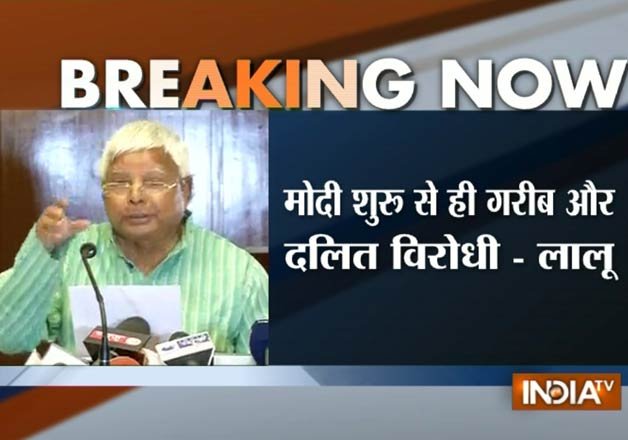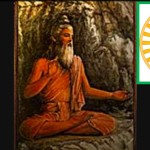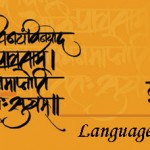A version of the following Post by @Krishnarjun was originally published by Vijayvaani.

The reservation system has been a deeply contentious and polarizing issue in Indian society and politics. Reservations for scheduled castes and scheduled tribes, in the Parliament and State Assemblies, were initially introduced in the Constitution through Article 334 for a period of ten years and later through amendments the period was extended multiple times. They were also given reservation in government jobs and educational institutions.
The Mandal Commission or Second Backward Classes Commission headed by B.P. Mandal, a parliamentarian, was set up by the Morarji Desai Janata Party government in 1979 to look into the aspect of reservations in government jobs and educational institutions for the undefined socially and educationally backward castes. The first commission on the issue was set up in 1953 under Kaka Kalelkar.
The Kaka Kalelkar Commission submitted its report in 1955. Considering all women as “backward”, it recommended 40% reservation in class III and class IV jobs, 33% reservation in class III, 25% reservation in class I jobs and 70% reservation in technical and professional institutes for backward classes. The recommendations were not accepted by the government.
The Mandal Commission submitted its report in 1980, by which time the Janata Party had lost power; the recommendations were not implemented by succeeding Congress regimes. The National Front government led by V.P. Singh accepted the recommendation for 27% reservation benefits to backward classes in government jobs and institutions of higher learning, in 1990. Its impact on Indian politics and society created the “mandalization” phenomenon in Indian politics.
 Reservation is certainly not an ideal way to transform a society or nation. Nor is it ideal for beneficiaries who would do better to emerge on their own performance, competing with others without the stigma of being “undeserved” gainers through reservation. But Indian elites have forced a situation where a level playing field without reservations has become a remote possibility in Indian society.
Reservation is certainly not an ideal way to transform a society or nation. Nor is it ideal for beneficiaries who would do better to emerge on their own performance, competing with others without the stigma of being “undeserved” gainers through reservation. But Indian elites have forced a situation where a level playing field without reservations has become a remote possibility in Indian society.
Without going too far back into Indian history and linking everything to Hindu birth based varna system, though that is still a factor, the single most important driver that contributed to the need for reservations in post independent India is the “English” language, the language and vehicle of imperialism.
The English language simply destroyed the confidence of the Indian masses; it impoverished the Indian mind and made it a perpetual slave. It has created a new super imposed caste hierarchy over existing caste hierarchies; destroyed the traditional education system by making it impossible to create quality educational infrastructure, teaching resources and materials in the country. It has made education a burden to a child rather than a joyous path to awareness and intelligence. It has chained the potential of Indian masses while benefiting few privileged elites at the top. To sum up, it has severely crippled the education system.
For the unprivileged majority, the journey of life starts with a load of social discrimination, caste prejudice and economic deprivation. Their only access to the world of ideas is their spoken language with limited vocabulary, and the work they engage with, which in most cases doesn’t fit into the modern definition of economic development that the elites aspire to and promote. Professional education through English medium is an intimidating barrier for them.
If Indian elites love English and consider it a global language for prosperity and enlightenment, why they have not made it a medium of instruction from primary level in public schools where the under-privileged send their children to study? It’s impossible to provide quality education in alien language to the masses. The necessary teaching resources and infrastructure needed are impossible to create unless the alien language becomes the spoken language of the masses.
With native language as medium of instruction from primary to higher education it would have been infinitely easier to create quality human resources, and infrastructure in Indian education system that can provide a reasonable level playing field for all sections irrespective of socio-economic background. No wonder even after 68 years of independence India stays at the bottom of the literacy pyramid among nations. Did the Indian elites really miss this common sense or was it a deliberate choice they made?
English has created its own caste hierarchy in the country. The elite led by those with a history of subservience to the British send their children to elite schools and colleges; the intermediate groups send children to mediocre schools; the majority suffers public school education.
Curiously, this English caste hierarchy overlaps greatly with traditional varna hierarchy and this overlap facilitates the seamless transition from varna elite, which enjoyed a monopoly on traditional education and literature, to English caste elite. The bottom of the varna hierarchy are also at the bottom in English education hierarchy. Reservations were a crude way to help them climb upwards.
The fact that the “creamy layer” concept enters recent discussions on reservation proves that the system created a creamy layer at some level for groups that never had it. The reservation system needs rationalization and can even be gradually removed if some level of equal opportunity is achieved in the education system from primary to college level, as also employment opportunities.
The “merit” argument of those opposed to reservation is hollow, opportunity can also create merit and it is not a privilege those from elitist backgrounds. The Indian elites with all their “merit” have only made India worse by exploiting the nation and society at every opportunity. There could be a conscious or subconscious reason for Indian elites for embracing English; they perhaps always need a language different from the language of the masses to maintain class purity and hegemony.
Since Narendra Modi became Prime Minister, reservation fires are being re-stoked. The two big reasons for Mr Modi’s historic win his integrity and social background; the masses connect with his ideas and leadership. The Indian elite and its foreign friends are not happy with this turn of events and are back to their chessboards, doing their best to divide and rule the masses. Reservation fires are being deliberately stoked to create Mandal-II.

The Mandal Commission recommended reservation benefits based on social, education and economic criteria; this gave some sections high-up in varna status the “backward” in some states. As it was not based on traditional varna classification, groups that had good socio-economic resources, mostly land owning castes, were excluded from reservation.
After the 1990s, the collaboration between Indian elites and their foreign friends increased under the mask of economic liberalization. For better control of the Indian economy, the elites have to make farmland, owned mostly by small and medium farmers, irrelevant in the economy. In the last three decades they have driven down farm income to 18% of GDP with 50% of Indian population engaged in it, leading to an epidemic of suicides among farmers.
The land owning agrarian groups which felt no need for reservations when the Mandal report was implemented in the 1990s, such as Jats, Patels, Marathas, now demand reservations with the changed structure of the economy. The Jats and Marathas were hastily included in the reservation list just before the 2014 elections, for their votes, but the courts struck down reservation to Jats on grounds of procedure. The Indian power elite, unable to digest a backward class Prime Minister with mass support, sees an opportunity in agrarian distress to derail the Modi juggernaut.
The Patels are the backbone of the BJP in Gujarat; they largely supported Narendra Modi as Chief Minister, though some elements occasionally tried to turn the group against Narendra Modi, prompted by disgruntled elements within the Sangh Parivar. Their attempts failed and Narendra Modi successfully used his Gujarat success as a launch pad to Delhi.
The Indian power elite in mission “Mandal II” aims at turning agrarian groups that are not part of their elite structure and are without reservation benefits against Narendra Modi. The Sangh Parivar factions that felt threatened by Narendra Modi’s rise in the BJP made all attempts to stop him in Gujarat; their shenanigans are now obvious.
The Delhi English power elite shows apparent distaste towards the Sangh Parivar in public, and could have get support in Gujarat against Narendra Modi before. Now, all of a sudden, the Patel community holds massive demonstrations led by an hitherto unknown 22 year old Hardik Patel, with gushing support from the English media!
This miraculous mobilisation of Patels indicates a well-coordinated plan against Narendra Modi, most likely with international backing. This is clearly a plan to turn land-owning agrarian groups that don’t enjoy reservation benefits (Patels, for instance) against a backward class Prime Minister.
The first test of this strategy is Bihar, the historical nerve center of backward class political mobilisation. With polls just weeks away, the RSS chief, Mohan Bhagwat, in an interview to Organiser weekly, asks for a review of the reservation system while answering a question on integral humanism! The anti-BJP forces in Bihar immediately lapped on his statement to allege that BJP led by a backward class leader is genetically against reservations.
The RSS chief got support from surprising quarters – Manish Tiwari and Jitin Prasada of the Congress! The BJP had to immediately issue denial and disagreement with Bhagwat. This only shows the total gang-up of elites, beyond professed ideological positions, against a backward class leader who is the first serious challenger to their hegemony.

The agrarian groups should ponder why their demands are getting sudden coverage in Delhi’s elitist media. They should not let the power elite, which has only contempt for them, to attack the reservation system and the political might of Narendra Modi over their shoulders. They will be left to their fate and ignominy once the elite bring down Narendra Modi. The agrarian communities suffering from farm distress should join with other under privileged groups and continue to support Narendra Modi as he is their best bet to unchain real India from the parasitic elitist class and its foreign collaborators.
Reservation is a sensitive issue and any change has to be preceded by honest work at the level of education and grass root socio-economic empowerment in India. The impact of the reservation system is limited to government jobs and under privileged groups cannot be denied their legitimate share in the administration. Without due diligence and sensitivity from all sides, politics and hypocrisy on reservations will continue to polarize Indian society to the benefit of Indian elite classes and their foreign friends.
The author of this post, Krishnarjun garu, can be reached on twitter and at his personal blog. We thank him for his kind permission to reprint this piece, published on September 28, 2015, at Vijayvaani.
Disclaimer: This article represents the opinions of the Author, and should not be considered a reflection of the views of the Andhra Cultural Portal. The Author is responsible for ensuring the factual veracity of the content, herein.





